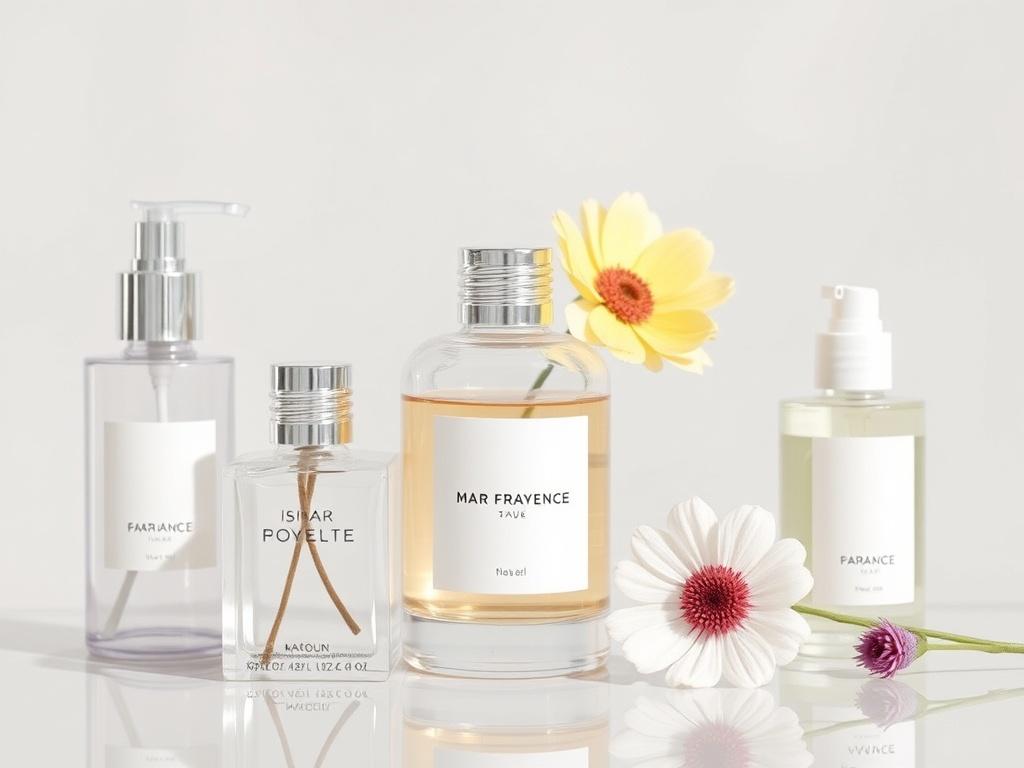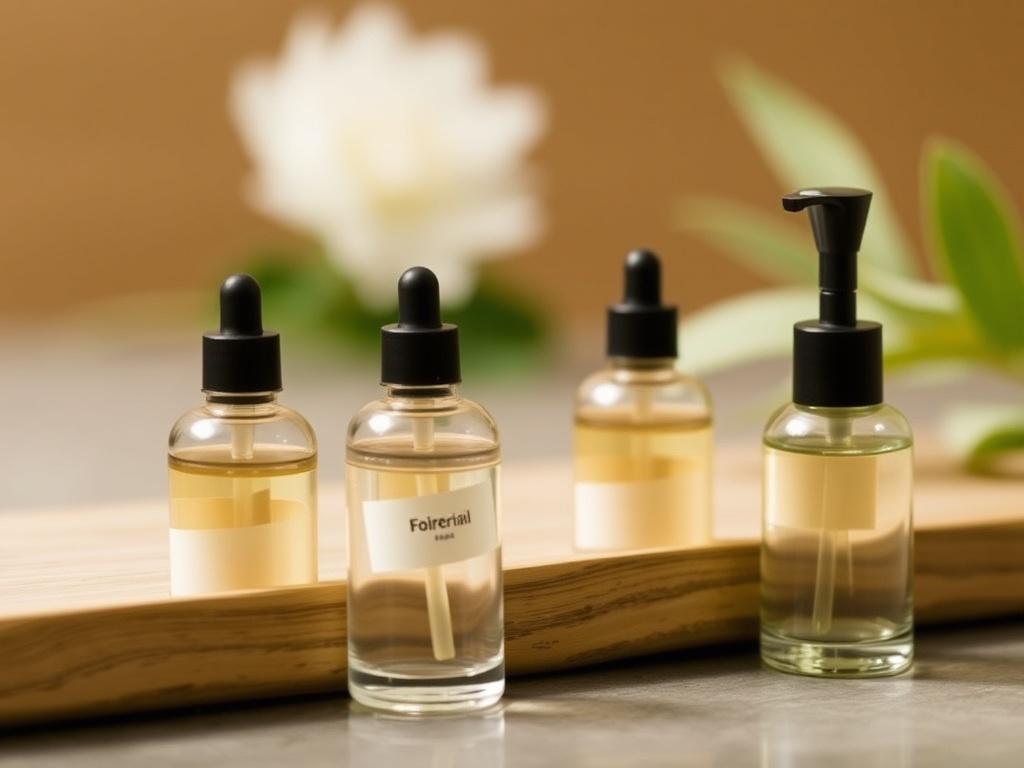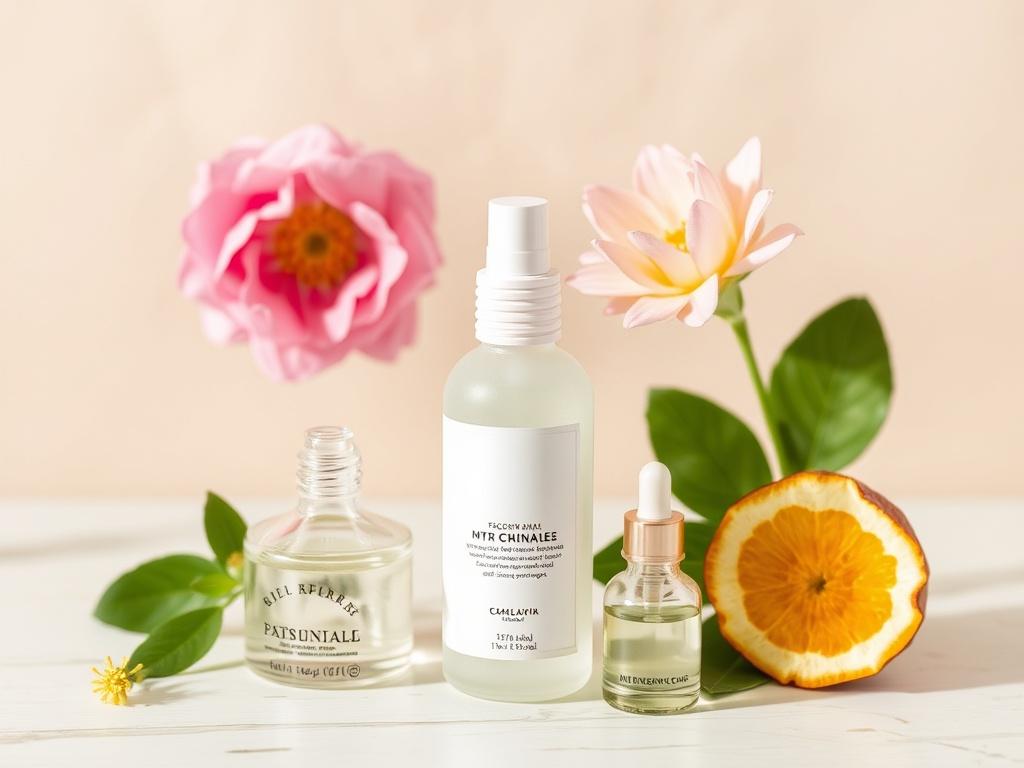Содержание статьи
- 1 Why Do Skincare Products Contain Fragrance?
- 2 The Potential Risks of Fragrance in Skincare
- 3 Benefits of Fragrance in Skincare
- 4 What Does “Fragrance-Free” Really Mean?
- 5 How to Choose Skincare Products if You’re Concerned About Fragrance
- 6 Alternatives to Fragrance in Skincare
- 7 Industry Trends and Consumer Awareness
- 8 Fragrance Myths and Facts
- 9 What About Perfume in Facial Skincare?
- 10 Summary: Balancing Enjoyment with Skin Health
Fragrance in skincare has long been a topic of debate, stirring strong opinions among beauty enthusiasts, dermatologists, and consumers alike. When you pick up a cream, lotion, or serum, you’ll often notice a pleasant smell that instantly elevates the experience. But is that delightful scent doing more harm than good? Many people wonder whether fragrance in skincare is simply a harmless addition or a potential irritant that should be avoided at all costs. Today, we’re diving deep into this complex issue, exploring what fragrance really means in skincare, the kinds of fragrances used, and how to decide if a scented product is right for you.
Let’s begin by understanding why fragrance is added to skincare products in the first place. It’s not just about making a product smell nice. Fragrance can mask the unpleasant odors of certain ingredients, improve the overall experience of applying skincare, and sometimes even evoke a sensory or emotional response. However, the flip side is that fragrance ingredients, whether synthetic or natural, can sometimes cause sensitivity, irritation, or allergic reactions in some individuals. Understanding the pros and cons, as well as how to identify fragrance types and what to look for on labels, is essential for anyone who cares about their skin’s health.
Why Do Skincare Products Contain Fragrance?
Fragrance is a common addition to many skincare products, from moisturizers to cleansers and even sunscreens. The primary purpose is to provide a pleasant scent that makes the product enjoyable to use. After all, skincare is a ritual for many people—a moment of self-care. A nice fragrance can enhance that experience by making a product feel spa-like, luxurious, or even invigorating.
Moreover, some ingredients used in skincare formulations have a natural but often unappealing smell. Fragrance helps mask these odors and improve the product’s overall sensory characteristics. These benefits are why fragrance remains a staple ingredient in countless skincare lines worldwide, despite the rising awareness of skin sensitivities.
Types of Fragrances in Skincare
Not all fragrances are made equal, and understanding their nature can help when choosing skincare. There are two main categories: synthetic fragrances and natural fragrances.
- Synthetic fragrances: These are man-made scent molecules created in laboratories. They are often cost-effective, stable, and can mimic many natural smells. However, some synthetic fragrances contain allergens or irritants that may trigger skin reactions.
- Natural fragrances: Extracted from plants, flowers, herbs, and fruits, these include essential oils and botanical extracts. While natural, they can still cause allergic reactions or sensitivity in some people, particularly those with sensitive skin or allergies to specific plant components.
The Potential Risks of Fragrance in Skincare
Many experts caution that fragrance in skincare can increase the likelihood of irritation or allergic reactions. For those with sensitive skin or conditions like eczema or rosacea, fragrance can exacerbate symptoms, leading to redness, itching, burning, and discomfort. But even people without known sensitivities sometimes experience adverse reactions.
Common Skin Reactions to Fragrance
The three most common skin issues linked to fragrance in skincare are:
| Skin Reaction | Description | Symptoms |
|---|---|---|
| Irritation | Non-allergic inflammation caused by exposure to an irritating substance. | Redness, dryness, burning sensation, itching. |
| Allergic Contact Dermatitis | An immune system reaction to fragrance allergens. | Redness, swelling, blisters, itching, rash. |
| Photosensitivity | Increased skin sensitivity to sunlight due to certain fragrance ingredients. | Sunburn, redness, rash following sun exposure. |
Many fragrance allergens are included in a group known as “fragrance mix,” which is used in patch testing for allergies at dermatology clinics. This means that even small amounts of certain fragrances can provoke a reaction in sensitive individuals.
Who Should Avoid Fragrance in Skincare?
The short answer is: anyone prone to skin sensitivity or allergy should approach fragranced products with caution. This includes:
- People with eczema, rosacea, or psoriasis
- Individuals with known fragrance allergies
- Those who have experienced skin irritation after using fragranced products
- People with very sensitive skin
For these groups, fragrance-free products or those labeled “hypoallergenic” and “unscented” are often safer choices.
Benefits of Fragrance in Skincare

Despite potential risks, fragrance isn’t all bad. It can bring benefits that many consumers truly appreciate.
Enhances User Experience
One of the most compelling reasons fragrance is popular in skincare is because it elevates the user’s experience. Imagine applying a rich, creamy moisturizer that leaves your skin soft and glowing—and also smells like fresh lavender or citrus. This pleasant scent can create an emotional uplift, making the skincare routine feel like a treat or a moment of relaxation.
Emotional and Psychological Effects
Certain scents are known for their aromatherapeutic properties. For instance, lavender can help reduce anxiety, while citrus scents may energize and uplift. While the amount in skincare products is usually small, the scent can still positively affect your mood and mindset.
Helps Mask Unsavory Odors
Many natural ingredients, such as some botanical extracts, clay, or sulfur, can have an unpleasant odor. Fragrance helps cover these smells, making the product more pleasant to use.
What Does “Fragrance-Free” Really Mean?

This is where things often get confusing. When a product claims to be “fragrance-free,” it means no added fragrances that are intended to scent the product. However, some “fragrance-free” products may still contain masking agents—ingredients designed to neutralize or cover odors from other components without imparting a scent.
On the other hand, “unscented” products mean the formula contains no scent at all or that added fragrances were masked effectively. However, sometimes “unscented” products still have a slight chemical smell, depending on the ingredients used.
Labels Explained
| Label | Meaning | Considerations |
|---|---|---|
| Fragrance-Free | No added fragrance intended to scent the product. | May contain masking agents; still best for sensitive skin. |
| Unscented | No scent or fragrance added; may contain masking agents. | Usually mild smell; may not irritate sensitive skin. |
| Hypoallergenic | Less likely to cause allergic reactions, but not guaranteed. | Not regulated, so check ingredient list carefully. |
How to Choose Skincare Products if You’re Concerned About Fragrance
If you’re worried about the effects of fragrance in skincare, how do you select products that suit your skin type and needs? Here are some helpful tips:
- Read ingredient labels carefully: Look for obvious fragrance ingredients or terms like “parfum,” “fragrance,” “essential oil,” or specific scent names.
- Patch test new products: Apply a small amount on your wrist or behind your ear and wait 24–48 hours to check for reactions.
- Choose products labeled fragrance-free: While not perfect, they often reduce the risk of irritation.
- Consult a dermatologist: Especially if you have known allergies or skin conditions, get professional advice.
- Consider natural fragrances with caution: Even natural scents can irritate sensitive skin; try them carefully.
Alternatives to Fragrance in Skincare
If you want to avoid fragrance but still crave a pleasant, aromatic experience, some brands focus on “minimal scent” or naturally mild-smelling ingredients that are less irritating. These alternatives might include:
- Products using gentle essential oils at low concentrations (like chamomile or calendula)
- Formulations that rely on natural botanical extracts without added fragrance
- Products focusing on texture and absorption rather than scent
Such products cater to individuals who wish for less irritation risk but still appreciate subtle sensory enjoyment.
DIY Skincare Options
For those truly concerned about fragrance, making your own skincare products at home allows you to control ingredients completely. Using simple ingredients like shea butter, coconut oil (if it suits your skin), and gentle carrier oils, you can create moisturizers or balms without added scents or potential irritants. Just be cautious with essential oils, as they can also be irritating in some cases.
Industry Trends and Consumer Awareness

In recent years, consumer demand for clean, minimalistic, and “free-from” skincare has led to a marked increase in fragrance-free and hypoallergenic products. Many brands proudly label their products as “fragrance-free” or “for sensitive skin” to appeal to this growing market segment.
Moreover, the rise in awareness about ingredient transparency means shoppers are now more informed, reading labels carefully and asking questions of brands about what their products contain. Skincare lines that focus on gentle, simple ingredients without unnecessary additives—including fragrances—are now flourishing.
The Role of Regulation
Regulation regarding fragrance in skincare varies worldwide. In the United States and Europe, manufacturers disclose ingredients but do not have to list specific fragrances because they are considered trade secrets. However, companies must list “fragrance” or “parfum” on ingredient lists. This can make it difficult for sensitive consumers to know exactly which fragrance ingredients are present, complicating allergy avoidance.
Some countries and organizations advocate for stricter labeling laws to help sensitive consumers identify and avoid problematic fragrance allergens more easily.
Fragrance Myths and Facts
Let’s clear up a few common myths about fragrance in skincare:
| Myth | Fact |
|---|---|
| All fragrance in skincare is harmful. | Not true—many people use fragranced products without issue, but some are sensitive. |
| Natural fragrance is always safer than synthetic. | Natural ingredients can still cause irritation and allergies. |
| Fragrance-free means the product has no smell at all. | Fragrance-free can still have masking agents or slight smells from other ingredients. |
| Hypoallergenic means no allergic reaction possible. | Hypoallergenic is not standardized and doesn’t guarantee no reaction. |
What About Perfume in Facial Skincare?
Facial skin is often more delicate and prone to sensitivity than other parts of the body, which is why many dermatologists recommend avoiding fragranced products on the face. Some perfumes, especially those with alcohol or strong synthetic components, can strip natural oils or disrupt the skin barrier, causing dryness or irritation over time.
For those who want to enjoy a scent while caring for their face, choosing lightly scented products formulated specifically for facial use is best. Or consider applying fragrance-free skincare and then a fragrance separately on pulse points away from the face.
Summary: Balancing Enjoyment with Skin Health
Fragrance in skincare is a double-edged sword. On one side, it enhances the sensory experience and can even uplift your mood. On the other, it can cause irritation, allergic reactions, or worsen existing skin conditions. Whether fragrance is really bad depends on your skin type, sensitivities, and personal preferences.
Most importantly, consumers should be educated and empowered to make informed choices. If fragrance in skincare causes you discomfort, opt for fragrance-free products and consult dermatologists for professional guidance. However, if you tolerate fragrance well and enjoy scented skincare as part of your ritual, there is no need to avoid it entirely.
Conclusion
In the world of skincare, fragrance isn’t inherently “bad,” but it’s not universally benign either. Its impact varies widely depending on individual sensitivity, type of fragrance used, and the product’s formulation. Being conscious of the ingredients, understanding your skin’s needs, and learning to interpret labels can help you decide whether fragranced skincare belongs in your regimen. Ultimately, whether you prefer the soothing scent of lavender or the crispness of citrus, or whether you opt for purely unscented formulas, the key to beautiful skin lies in finding balance—between enjoying your skincare and nurturing your skin’s health.

